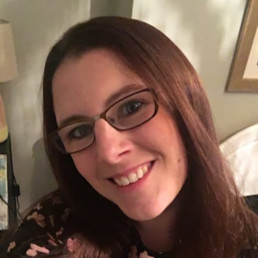
Written by Sophie McPhee
PSHE Coordinator in a West Midlands grammar school and Programme Director for the national Year 12 health and wellbeing enrichment programme Change Your Mind.
As committed life-long learners (I hope!), we sometimes get those ‘Oh wow!’ moments where suddenly, our eyes have been opened to a concept we’ve never considered before, and may even be obvious once we’re aware of it, but now we see part of the world in a completely new light. This is exactly what happened during a workshop Liz Wright (http://www.elizabethwright.net/) delivered at my school for our annual Mental Health Week in 2020, where she introduced to me and my students the social model of disability. Up to that point, the closest I had come to really thinking about disability in my 36 years was as a child, when my mum said she didn’t like a particular word beginning with ‘s’ commonly used as an insult when I was growing up in the 90s, because it was derived from the accepted term for people like her sister, who had cerebral palsy.
I feel ashamed to admit that I had to actually be taught to view disability as something created by society and not someone’s physical or mental difference – I had never even given disability the space in my brain for that thought to emerge independently. However despite my shame, it was a blessing, too, as it led to the firm decision during that workshop that disability awareness was not going to be a one-off session for an event week, but become a firm fixture in our PSHE curriculum. I will honestly say that I had never even considered doing this before – but isn’t that the point? If something is not within our lived experience – and I use that term broadly, to include having close contacts who are disabled – then the problem is not that we consciously think it doesn’t matter, but that it doesn’t even enter our head in the first place. I guess that this is a kind of unconscious bias – we only grant an issue more than a fleeting awareness if it relates to us in some way.
To be honest, I was also a little scared of covering this topic in my lessons, even if I did firmly feel that like me, my pupils should be woken up to – and the use of ‘woke’ is not accidental here, nor is it a pejorative – how they can be an ally to people with disabilities. There is absolutely such a thing as ‘non-disabled fragility’ (albeit not as catchy as the ‘white’ equivalent), whereby those of us without disabilities are so scared of getting it wrong, or speaking for or over those with lived experience. I am careful to point out in all my lessons that as a socially privileged woman, I am passing on what I have learned, but am by no means done with that learning. I made sure that once I had finished creating my lesson, I sent it to Liz and she kindly checked it over, patiently and gently pointing out a couple of places where I had used ableist language. It was a model of what educating others should look like – non-judgmentally uncovering and explaining problematic language which could have otherwise embedded problematic thinking.
I have now delivered this lesson to classes in Y9-11, some as live lessons, others as a pre-recorded version followed-up by a post-learning quiz. It appears that it has been successful, gaining an average rating of 4.4 out of 5 from students, most of whom said that they intend to change their language as a result of this lesson, both when referring to and talking to disabled people, and now know that common insult words are often derived from terms used in the past to refer to disability. Very often, pupils judge their lessons on whether they need to know the content for an exam or future career, but in PSHE, it’s not always about that, it’s about what others need them to know. We need, through these and other lessons which explore the vast range of human experience, to help pupils understand that creating a more inclusive and just society does relate to them. It might not do so always in a tangible sense, yet it weaves its way into not only our institutions, systems and processes, but also the quotidian, such as our face-to-face and social media interactions. Additionally, I would argue that there is most certainly a personal benefit to this kind of learning. It is incredibly enriching to understand better those whose experiences of life are different to yours. However, our pupils will only appreciate that benefit if they can first move away from viewing the purpose of education as leading to their future in purely material terms. And that is something all schools have in their power to influence.
You can access the disability awareness lesson at theother16hours.wordpress.com.

